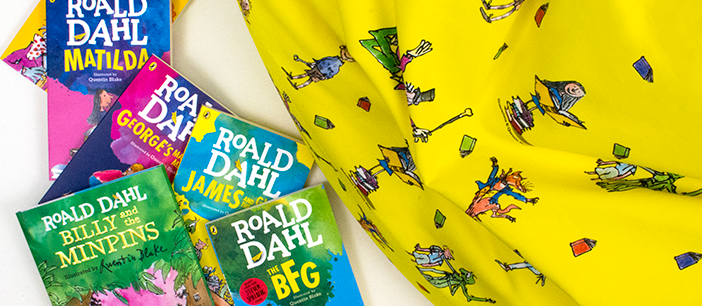The ’80s might not immediately conjure up an image of Roald Dahl, but some of his most popular novels like The BFG, Matilda and The Witches were released in the tubular decade. His books are still incredibly successful; they have sold more than two hundred and fifty million copies worldwide and are still being adapted into films even now, The BFG having been adapted by Stephen Spielberg only last year.
While Roald Dahl’s stories might be world famous, his life story is just as interesting as any magical chocolate factory. He didn’t start of as an author, Dahl was an RAF pilot in World War II and only began writing after he was sent home because of headaches and blackouts. The Saturday Evening Post asked one of their writers to get anecdotes about Dahl’s experience and transform them into a story. Instead, the anecdotes Dahl produced were published unedited and became his first short story, titled ‘Shot Down Over Libya’. After his invalidation from the Air Force, Dahl worked in the U.S to discourage isolationist attitudes and promote Britain’s interests. However, he also continued with his writing career and published his first story for children in 1943.
He went on to write stories that defined childhoods for many. Whether it’s from reading Charlie and the Chocolate Factory, watching the iconic pancake scene in the film adaptation of Matilda or lying awake thinking about the terrifying hags from The Witches, I don’t think many people can say that Roald Dahl did not influence their youth in some way. Roald Dahl’s writing has an enviable quality in that it is dark, in a way that is intoxicatingly different from the overt sentimentality which can be found in most children’s books, whilst also maintaining a real humour.
The characters were colourful, the plots were ridiculously entertaining and the famous Quetin Blake illustrations came to define the way we see Roald Dahl. Despite disturbing stories of a weird man tricking and probably traumatising children (Charlie and the Chocolate Factory), poisoning relatives (George’s Marvellous Medicine) and kidnapping (The BFG), the stories still manage to be optimistic, seeming to suggest happy endings for even the most unfortunate of children.
Not only was Roald Dahl a beloved children’s author, but he also wrote many short stories for adults. Like his writing for children, the work relied on the element of unconventionality and surprise. The stories take the disturbing aspect of Dahl’s children’s stories and turns it into something which at times seems unpalatable, but is still intriguing for the twist endings and same distinctive voice.
Roald Dahl’s stories were wonderfully unique and hold a special place in the hearts of many who knew his stories in childhood. He died in 1990 and since then, his clever, macabre and amusing outlook on children’s literature has never quite been like replicated, although his voice is the kind that will surely continue to enchant children for generations to come.



